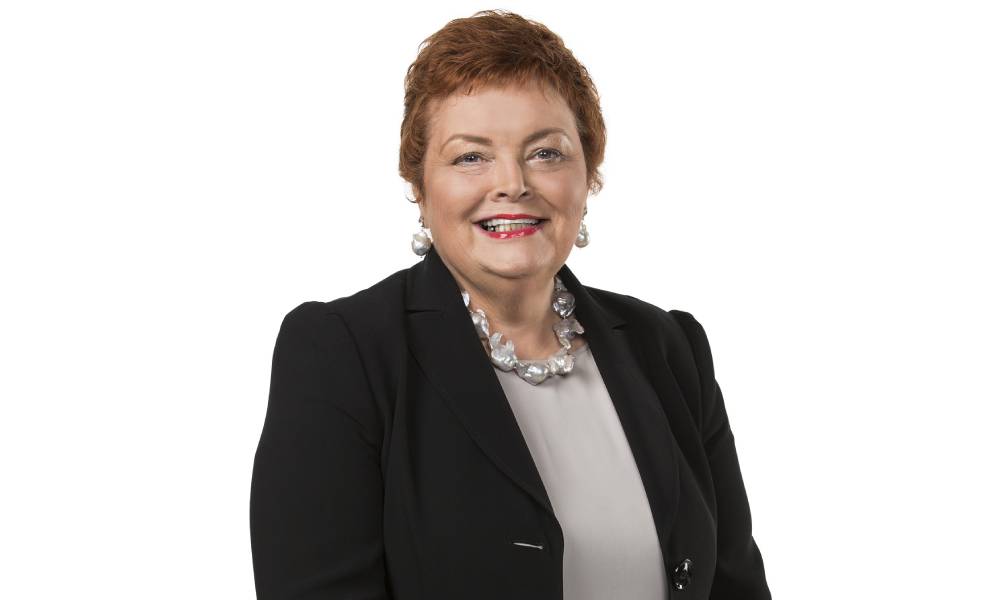
Modern slavery needs to be treated like a serious crime, Anne O'Donoghue tells Australasian Lawyer

Anne O’Donoghue has seen a lot in more than 28 years of working in immigration law. This accredited specialist, who is the managing director and principal lawyer of Immigration Solutions Lawyers, has long been passionate about legal advocacy, human rights and particularly modern slavery.
“Modern slavery is one of the biggest human rights issues that needs to be addressed in Australia and internationally,” O’Donoghue tells Australasian Lawyer.
Her passion for children’s rights and modern slavery developed over a decade ago, after taking on the case of a young Bangladeshi girl who was very nearly denied life-saving treatment because she and her family couldn’t stay in Australia, according to the Department of Immigration and Citizenship. O’Donoghue was able to successfully argue for the right to have then-Immigration Minister Chris Bowen reconsider her client’s case.
“This case, and the obstacles this child encountered to receive life-saving treatment, highlighted to me that it was often necessary to challenge the status quo, to always challenge things, never accept things on face value and realise that there are often political motivations at play behind every decision,” O’Donoghue says. “It spurred my passion for children’s rights and migrant children’s cases.”
This passion led O’Donoghue to be elected a member of the International Bar Association’s Presidential Taskforce on child migration and migrant children, which tackled the issues of modern slavery and human trafficking. She points to sombre statistics from the 2016-17 Interdepartmental Committee Human Trafficking and Slavery Report showing that as per global estimates, at least 40 million people were estimated to live in modern slavery conditions in that period – however, only 13 Australian prosecutions related to human trafficking and slavery went to court (Australia).
The lack of community and empirical knowledge on the extent of modern slavery is a significant challenge to its alleviation, explaining that victims may not have the resources or incentive to seek help, she explains. Successful prosecution is also hampered by suspected victims and witnesses’ reluctance to provide evidence out of fear.
“This is particularly true where individuals kept in slave-like conditions are scared that they have overstayed their visas or will be deported and therefore ‘elect’ to remain in unsafe situations. This is coercive control,” O’Donoghue says.
She highlights the case of a Tamil woman who was kept as a slave by a Sydney couple for eight years before the matter went before the Supreme Court, and expresses her belief that modern slavery should be viewed “like any other serious crime to acknowledge the absence of humanity present in keeping someone in slave-like and exploitative conditions.”
O’Donoghue calls for an overarching strategy underpinned by a human rights approach to address modern slavery and hold all stakeholders accountable.
“In utilising a human-rights approach in the legal profession to combat the crime, pro bono work and education is key,” O’Donoghue explains. “Ancillary to this, is the strengthening of existing policy surrounding modern slavery to match the practical realities faced by victims, and potential victims.”
She cites examples such as offering a national compensation scheme and pathways to protection visas for victims.
O’Donoghue highlights the additional layer of difficulty that the coronavirus pandemic has brought upon global modern slavery responses, stating that the virus has provided optimal conditions for modern slavery to prosper. She refers to the International Labour Organisation, which estimates that 93% of the “world’s workers” had seen workplace closures within their country in early January 2021; in addition, global job losses were estimated at 114 million in 2020.
She states that as a consequence, many people have been forced to accept any form of work that is available to them.
O’Donoghue says her ultimate goal is to meet Sustainable Development Goal 8.7, which calls for nation-states to “take immediate and effective measures to eradicate forced labour, end modern slavery and human trafficking and secure the prohibition and elimination of the worst forms of child labour, including the recruitment and use of child soldiers, and by 2025 end child labour in all its forms”.
“Despite this aspiration, we have a long way to go in achieving this as a result of the clandestine and hidden nature of the crime,” O’Donoghue says. “This is why innovative responses are required by governments, business, NGOs and ordinary individuals to ensure that the conditions which permit modern slavery to exist are stamped out.”
O’Donoghue commends the recent Exposure Draft Migration Amendment (Protecting Migrant Workers) Bill 2021. The Bill proposes to eliminate modern slavery within Australia’s migration regulatory frameworks and protects migrant workers from unscrupulous employers.
In her recent submission to the Exposure Draft Migration Amendment (Protecting Migrant Workers) Bill 2021, O’Donoghue suggested to emphasise the “non-punishment principle,” which posits that victims will not be punished for the unlawful activities if such activities are an incidental or direct consequence of their condition. Such principles were firstly recognised in the 2002 Recommended Principles and Guidelines on Human Rights and Human Trafficking of the Office of the United Nations High Commissioner for Human Rights (OHCHR Principles), and have been introduced in several international legal instruments.
The application of the “non-punishment principle” will help to prevent re-exploitation.
Despite actioning aspirations, O’Donoghue states that we must broaden our perspective and response to modern slavery. She refers to the Afghanistan crisis and states that the difficult situation has meant that women’s rights will be deprived even further. O’Donoghue states that it is vital that the rights of women are protected and are placed at the forefront of every human rights agenda taking place in Afghanistan.
She states that the situation will provide an optimal environment for modern slavery to flourish unless the UN takes a leading role in protecting Afghan women from various forms of modern slavery.